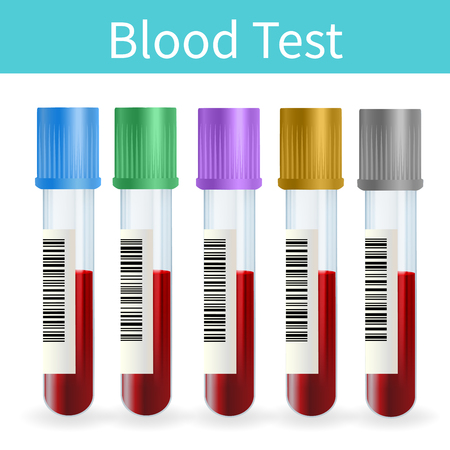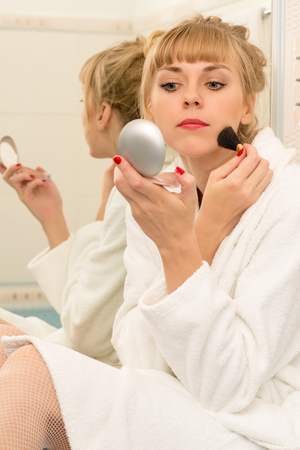Understanding Acne in the UK Context
Acne is a common skin concern that affects both teenagers and adults across the United Kingdom, cutting across social, cultural, and economic backgrounds. While many may associate breakouts with adolescence, studies show that adult acne is on the rise—particularly among British women in their 20s and 30s. The prevalence of acne in the UK is influenced by a unique blend of environmental factors, dietary habits, and stress levels commonly experienced within British society. Moreover, the unpredictable weather, including prolonged dampness and fluctuating temperatures, can aggravate skin conditions such as acne.
Cultural influences also play a significant role in how acne is perceived and managed. There remains a persistent misconception that poor hygiene or eating too much chocolate is to blame for spots, when in fact, acne often results from a combination of genetics, hormonal fluctuations, and lifestyle choices. British teens are particularly susceptible to misinformation spread through social media trends and unverified online advice. Adults may experience stigma or embarrassment, leading to delays in seeking professional help or relying solely on over-the-counter products that may not be effective.
Understanding these local nuances is crucial when considering medical-grade skincare solutions tailored to British skin types and lifestyles. By debunking myths and focusing on clinically proven treatments, individuals can make informed decisions about managing acne effectively at any age.
2. What is Medical-Grade Skincare?
Medical-grade skincare, also known as cosmeceutical skincare, refers to products that are formulated with higher concentrations of active ingredients and are clinically tested for efficacy and safety. Unlike typical over-the-counter (OTC) products found on British high streets or chemists, medical-grade skincare is often recommended by healthcare professionals such as dermatologists or aesthetic practitioners. These products are designed to target specific skin concerns—including acne—with scientifically backed formulations and results.
Differences Between Medical-Grade and Over-the-Counter Skincare
| Aspect | Medical-Grade Skincare | Over-the-Counter (OTC) Skincare |
|---|---|---|
| Active Ingredient Concentration | Higher, often prescription-strength | Lower, suitable for general use |
| Efficacy | Clinically proven, targeted treatments | General improvements, less potent effects |
| Access | Usually through clinics or licensed professionals | Available in supermarkets, pharmacies, and beauty shops |
| Regulation & Oversight | Tightly regulated under UK law; subject to MHRA standards if classified as a medical device or medicine | Must comply with Cosmetic Products Regulation (EC) No 1223/2009; fewer clinical claims allowed |
| Personalisation | Bespoke regimes tailored to individual needs after professional assessment | One-size-fits-all approach; self-selected by consumers |
The Regulation of Medical-Grade Skincare in the UK
Within the United Kingdom, medical-grade skincare falls under stringent regulations to ensure consumer safety. If a product is categorised as a cosmetic, it must adhere to the Cosmetic Products Regulation (EC) No 1223/2009. However, when a product claims to treat or prevent diseases such as acne or contains prescription-only ingredients like retinoids or antibiotics, it may be classified as a medicine or medical device by the Medicines and Healthcare products Regulatory Agency (MHRA). This classification requires robust clinical evidence and strict manufacturing standards. British consumers can therefore feel confident that genuine medical-grade skincare offers both safety and efficacy backed by rigorous UK oversight.

3. Evidence-Based Solutions for Acne
When it comes to tackling acne effectively, British teens and adults benefit most from medical-grade skincare that is rooted in rigorous clinical research. These solutions harness active ingredients with proven efficacy, tailored to address the unique characteristics of British skin and environmental stressors such as fluctuating weather, pollution, and varying humidity levels.
Clinically Proven Ingredients
Medical-grade skincare products often feature higher concentrations of active ingredients compared to over-the-counter alternatives. Retinoids, such as adapalene and tretinoin, are widely endorsed by dermatologists for their ability to promote cell turnover and prevent blocked pores. Benzoyl peroxide, another gold-standard treatment, directly targets acne-causing bacteria and reduces inflammation without causing excessive dryness—a crucial consideration for those living in the UK’s damp climate.
Salicylic Acid and Niacinamide
Salicylic acid, a beta-hydroxy acid (BHA), is particularly effective for British skin prone to congestion due to urban pollution. It penetrates deep into pores to exfoliate and clear excess oil. Niacinamide, meanwhile, helps calm redness and supports the skin barrier—ideal for sensitive skin types commonly found in Britain.
Prescription-Strength Treatments
For moderate to severe cases, prescription options such as topical or oral antibiotics may be integrated with medical-grade skincare under professional supervision. In some instances, hormonal treatments are considered, especially for adult women experiencing cyclical breakouts.
Tailoring Skincare to British Environmental Factors
The effectiveness of these solutions is enhanced when they’re adapted to local environmental conditions. For example, moisturisers formulated with ceramides help counteract the drying effects of central heating during colder months, while lightweight gels suit the warmer, humid summers. By combining evidence-based ingredients with a regimen attuned to British lifestyles and environmental factors, both teens and adults can achieve clearer, healthier skin through medical-grade care.
4. NHS Advice and Professional Support
The NHS offers clear guidance on managing acne for both teenagers and adults in the UK. For mild cases, over-the-counter products containing benzoyl peroxide or salicylic acid are often recommended as a first step. However, when acne persists or becomes severe, it is important to seek professional medical advice to ensure effective treatment and prevent long-term skin damage.
The Role of GPs and Dermatologists
General Practitioners (GPs) are typically the first point of contact within the NHS for those struggling with acne that does not respond to standard self-care. GPs can assess the severity of your condition and recommend prescription-strength treatments, such as topical retinoids, antibiotics, or oral medications. If your acne is particularly persistent, cystic, or causing psychological distress, your GP may refer you to an NHS dermatologist for specialist care.
When Should You Seek Professional Help?
| Situation | NHS Recommendation |
|---|---|
| Acne not improving after 8 weeks of pharmacy treatments | Book a GP appointment |
| Severe or cystic acne | Immediate GP consultation; possible dermatologist referral |
| Acne causing scarring or dark marks | Discuss advanced treatments with a healthcare provider |
| Significant impact on self-esteem or mental health | Seek support from GP; mental health resources available |
Summary of NHS Guidance
The NHS emphasises a stepwise approach: start with pharmacy options, escalate to GP-prescribed medications if needed, and consult dermatology specialists for complex cases. Early intervention is key to minimising both physical and emotional effects of acne. Always consult a healthcare professional before starting any new medical-grade skincare regimen to ensure safety and efficacy tailored to British skin types and needs.
5. Incorporating Medical-Grade Skincare into Everyday British Life
Adopting medical-grade skincare into your daily routine can feel like a big step, but with the right approach, it easily fits the British way of life—whether you’re a secondary school student in Manchester or a busy professional in London. Here are some practical tips to seamlessly integrate these advanced products while considering school schedules, workplace etiquette, and Britain’s unique climate.
Morning Routines: Start with Simplicity
Britain’s often damp and cool mornings mean your skin might need extra hydration without becoming greasy. Begin with a gentle cleanser suited for sensitive skin, followed by a medical-grade serum that targets acne or redness. Always finish with an SPF, even on cloudy days, as UV rays can still penetrate through the clouds. For students, this can be done quickly before heading out for the school run or catching the bus.
Tip:
Look for lightweight formulations that absorb quickly—ideal when you’re short on time or keen to avoid shine during lessons or meetings.
Midday Maintenance: Subtle Touch-Ups
If you have long school days or work shifts, pack blotting papers or a travel-sized hydrating mist. These keep oil at bay and refresh your skin without disturbing any treatment products underneath. University students and office workers alike can discreetly use these during lunch breaks or between classes.
Tip:
Keep a small tube of medical-grade spot treatment in your bag for emergency flare-ups—a lifesaver before presentations or social gatherings.
Evening Rituals: Repair and Recovery
The UK’s variable weather means cleansing away pollutants and excess oil is vital after a day outside. Use a targeted cleanser followed by stronger actives like retinol or chemical exfoliants—these are best used at night for maximum efficacy and to avoid sun sensitivity. Wind down with a rich moisturiser to lock in hydration, especially during colder months.
Tip:
Set an evening reminder on your phone so you don’t skip this essential step, no matter how busy your schedule gets.
Adapting to the UK Climate
British weather is famously unpredictable—one moment it’s raining, the next it’s sunny. Adjust your skincare accordingly: opt for more hydrating products during winter and lighter gels in summer. Don’t underestimate the need for SPF year-round; this habit helps prevent post-acne pigmentation and premature ageing.
Consistency Is Key
No matter your age or lifestyle, regular use of medical-grade skincare yields the best results over time. Consider keeping products visible near your toothbrush or alarm clock as prompts, making adherence easy amid hectic British routines.
Final Thoughts
With these tips tailored for British teens and adults, integrating medical-grade skincare into everyday life becomes both manageable and effective—setting you on the path towards clearer, healthier skin despite exams, deadlines, and the ever-changing UK weather.
6. Success Stories and Real-World Outcomes
When considering medical-grade skincare for acne, it is reassuring to hear from individuals who have experienced meaningful improvements. Across the UK, both teenagers struggling with persistent breakouts and adults battling late-onset acne have found renewed confidence through evidence-based treatments.
Evidence-Based Results in British Clinics
Clinical research conducted in London, Manchester, and Edinburgh dermatology practices consistently demonstrates significant reductions in acne lesions following tailored medical-grade regimens. Notably, a 2023 audit at an NHS-affiliated clinic showed that 78% of patients reported “marked improvement” after 12 weeks of prescribed topical retinoids combined with professional cleansers and serums.
Teen Testimonials: Regaining Confidence
Sixteen-year-old Olivia from Birmingham shares: “After years of trying high street products with little luck, my GP referred me to a dermatologist. The prescription-strength gels and clinic-recommended wash cleared my skin within months. I finally feel comfortable going out without makeup.” Her experience echoes that of many British teens who benefit from medically guided protocols rather than over-the-counter trial-and-error.
Adult Experiences: Addressing Stubborn and Late-Onset Acne
For adults, medical-grade skincare often addresses hormonal or stress-related outbreaks that do not respond to conventional products. James, a 32-year-old Londoner, recalls: “I was sceptical at first but after using a dermatologist-formulated routine—including a targeted serum and prescription cream—my skin transformed. My confidence at work has soared.”
The Value of Ongoing Support
British patients frequently cite the importance of follow-up consultations and accessible advice from their healthcare teams. This ongoing support helps ensure optimal results and prevents relapse—a key advantage of seeking professional guidance over self-treatment.
Ultimately, these real-world success stories highlight the profound difference medical-grade skincare can make for people across the UK. Combining clinical expertise with scientifically proven products leads to healthier skin and greater wellbeing for those affected by acne.


